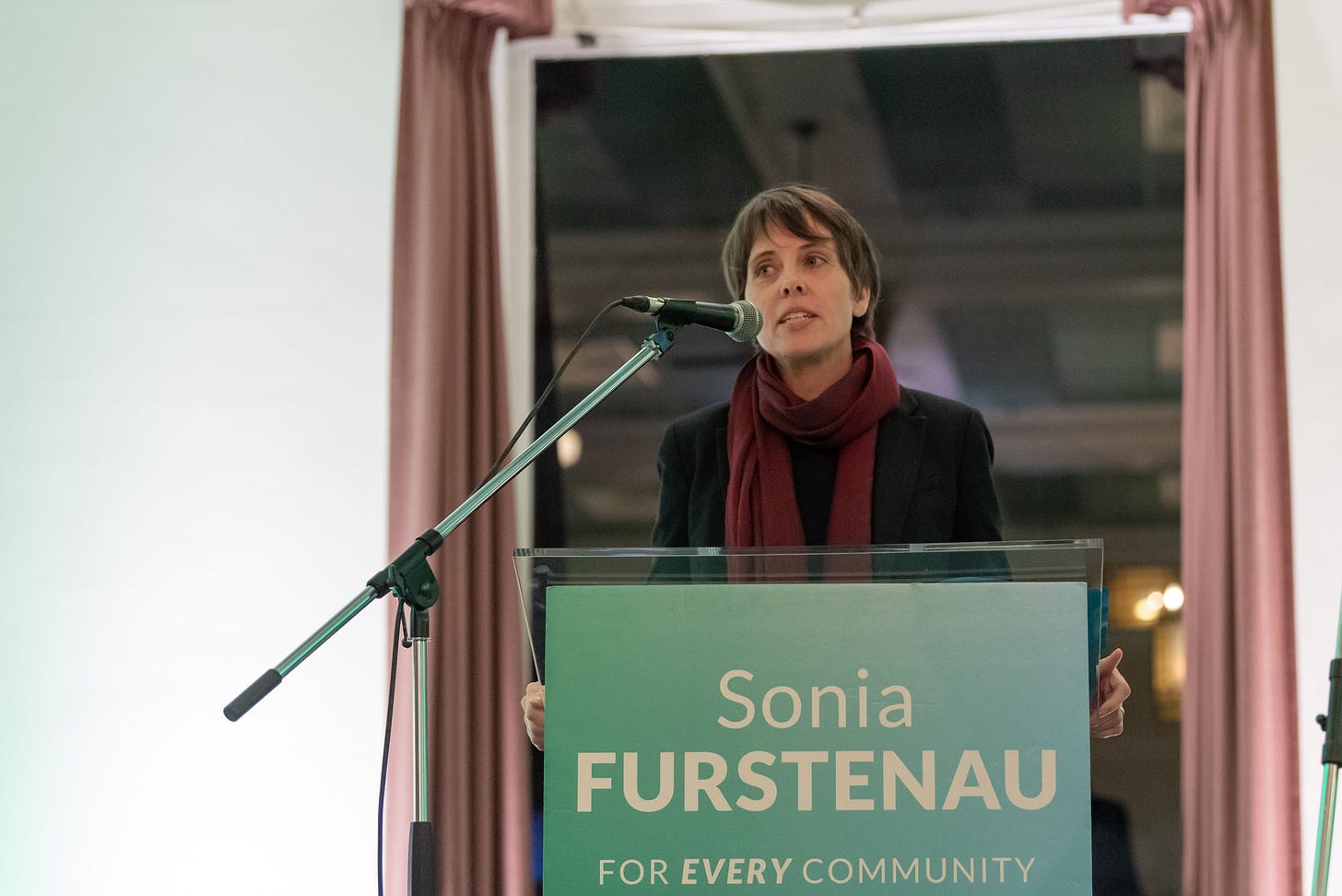Ready, set…
If the writs were drawn up tomorrow, who has candidates ready to go?
The 2024 election is in 142 days. Just under five months. If someone is thinking about running in the upcoming campaign, they need to make a decision quickly.
Now that any chance of United and the Conservatives working together is gone, the question of how many candidates each party will run where is over. Everyone will try to run a candidate everywhere. The question now is: who will succeed?
The diligent editors of Wikipedia are pretty quick to add new announcements of candidates, so I'm going off there for the current counts.

As of writing this, the incumbent BCNDP have announced candidates for 26 ridings out of 93, but with many of their incumbents likely to run again, it won't take them long to fill in their slate. Plus, as the incumbent government, recruiting strong candidates becomes much easier. People like the idea of being on the decision-making benches.
For the government it makes sense for the party to nominate candidates later, both to allow time for robust recruitment and internal elections to take place, and also to keep from their opponents if any other incumbents are stepping down, potentially making a seat more competitive. No one can call the election early other than Premier Eby (technically the Lieutenant-Governor on the advice of the Premier) so there's no risk of being caught unexpectedly.
United has nominated 55 candidates, with most of their incumbents out of the way and a steady steam of announcements of new candidates. With 38 to go, they're well on their way to having their full slate, but they're in a race for the banner of “the other choice” with the BC Conservatives, who currently have them outpaced.
The BC Conservatives, who could barely pull together a partial slate in 2020, lead in nominations with 62 61 candidates ready to hit the doorsteps. While that has certainly helped build their momentum and legitimacy as a serious contender for the 2024 election, it remains to be seen how these candidates hold up under scrutiny, and whether the party's vetting was robust enough to avoid a series of bad news stories leading to election day.
The Conservatives also lead in actually getting candidates on the ballot. Once a candidate is nominated, they still need to collect a minimum of 75 signatures from residents of the riding they’re running in and file paperwork with Elections BC. For a new or inexperienced candidate this can be a daunting part of the process. If left to the last minute, they risk missing the deadline and not being on the ballot. 30 of the BC Conservative nominees have a “standing nomination” and are ready to go, versus 5 for BC United and 4 Greens. The NDP have not filed any standing nominations as of yet.
The Greens are behind or absent in most of the province, with 17 candidates nominated to run. Over half of those candidates are on Vancouver Island.
It's a hard proposition to ask someone to run for election, especially if they are running somewhere they have little chance of winning. The longer the party leaves things, the more likely they will struggle to find candidates, and more importantly, someone to collect the signatures required to get on the ballot. The last time the Green Party ran a full slate was in 2009. Someone who lives in the Peace region, for example, hasn't been able to vote for a Green candidate in over a decade.
The pressure to run a full slate comes from the idea that if a party is going to form government, they need to at least have a presence in every constituency, even if they're not going to win the seat. If the party is absent from an entire region it's hard to argue they are ready to govern the province.
The other factor is that, especially for a party that hasn't yet won seats in the legislature, a full slate is one of the ways to argue you should be included in the provincial debates. Just ask Gordon Wilson how important it is to be on that stage.
For the BC Conservatives, who did not win any seats in 2020 — their current MLAs crossed the floor from BC United — they have added incentive to run candidates in every riding.
Not every party aims for government. Federally, the Bloc Québécois has never tried for the Prime Minister's chair, and they seem to do just fine as an organization, electing parliamentarians focused on ‘la belle province’ who commit to put its needs ahead of the issues of rest of the country. But for the region they're seeking to represent, they run in every available seat, and they make no pretense about being a fully national political organization.
For BC’s parties, they want to be the government. The NDP obviously wants to hold on to power, United wants to be returned to power, and the Conservatives want to be seen as the government-in-waiting, replacing United as the alternative to the NDP. Even the Greens talk big game — Furstenau's leadership campaign slogan was “For Every Community” — though it remains to be seen if they will catch up on nominations in time to make that argument in the election.
At the moment United and the Conservatives look ready to go. The Greens do not. With only a few months left, the window is rapidly closing.




